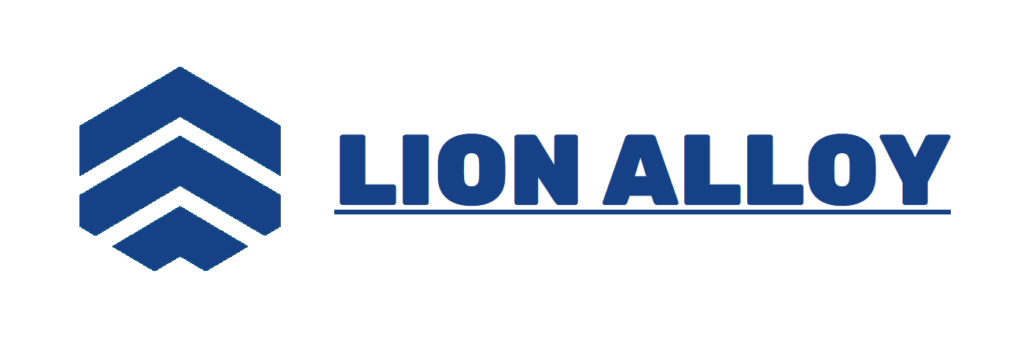Introduzione al prodotto Udimet® in lega 720
Udimet® Alloy 720 è una SuperAlloy a base di nichel ad alta resistenza nota per le sue eccellenti proprietà meccaniche e resistenza ad ambienti ad alta temperatura. Questo articolo fornisce un'introduzione completa a Udimet® lega 720, coprendo la sua composizione chimica, le proprietà meccaniche, le prestazioni a diverse temperature, applicazioni industriali, forme e dimensioni, standard di produzione, capacità di saldatura e lavorazione, vantaggi e svantaggi e un confronto con lega simili .
Composizione chimica
Udimet® Legato 720 è composto principalmente da nichel con significative aggiunte di cobalto, cromo, ferro e altri elementi per migliorare le sue proprietà meccaniche e termiche:
| Elemento | Composizione (%) |
|---|---|
| Nichel (Ni) | 59,0 - 63,0 |
| Cobalto (Co) | 17.0 - 21.0 |
| Cromo (Cr) | 15.0 – 17.0 |
| Ferro (Fe) | 3.0 – 5.0 |
| Molibdeno (Mo) | 1.5 - 2,5 |
| Tungsteno (W) | 0.5 - 1.5 |
| Alluminio (Al) | 0.5 - 1.5 |
| Titanio (Ti) | 0.5 - 1.5 |
| Boro (b) | 0.003 - 0,01 |
| Carbonio (C) | 00,08 massimo |
Proprietà meccaniche
Udimet® Leale 720 presenta eccellenti proprietà meccaniche adatte per applicazioni ad alta temperatura:
| Proprietà | Valore |
|---|---|
| Resistenza alla trazione, ksi (MPa) | 170 - 190 (1172 - 1310) |
| Limite di snervamento (compensazione dello 0,2%), ksi (MPa) | 120 - 140 (827 - 965) |
| Allungamento (% in 2 pollici) | 15 - 20 |
| Durezza, Rockwell C (HRC) | 35 - 40 |
Caratteristiche prestazionali
Udimet® Legato 720 offre diversi vantaggi per le prestazioni:
- Resistenza ad alta temperatura: Mantiene eccellenti proprietà meccaniche a temperature elevate fino a 1000 ° C (1832 ° F).
- Resistenza all'ossidazione: Fornisce una buona resistenza all'ossidazione e alla corrosione ad alta temperatura in vari ambienti.
- Resistenza al creep: Presenta un'elevata resistenza al creep, rendendolo adatto alle applicazioni sotto stress costante ad alte temperature.
Applicazioni industriali
Udimet® Lay 720 è utilizzato in vari settori che richiedono alte prestazioni in condizioni estreme:
| Settore industriale | Applicazioni |
|---|---|
| Aerospaziale | Componenti a turbina a gas come pale della turbina, palette e dischi. |
| Produzione di energia | Componenti della turbina a gas e vapore, camere di combustione e scambiatori di calore. |
| Elaborazione chimica | Vai da reattore, scambiatori di calore e tubi che gestiscono sostanze chimiche corrosive ad alte temperature. |
Forme e dimensioni
Udimet® Alloy 720 è disponibile in vari moduli e dimensioni per soddisfare i requisiti specifici dell'applicazione:
- Forme: Lamiere, lastre, barre, pezzi fucinati e fili.
- Taglie: Spessori da 0,5 mm a 100 mm per le piastre e diametri da 1 mm a 300 mm per le barre tonde.
Standard di produzione
Udimet® Leale 720 è conforme agli standard di produzione internazionali che garantiscono qualità e affidabilità:
| Forma del prodotto | Forme disponibili | Taglie disponibili | Standard di produzione |
|---|---|---|---|
| Lastre/Fogli | Fogli, Piatti | Spessore: 0,5 mm – 100 mm | ASTM B637, AMS 5764 |
| Barre/Aste | Barre tonde, Barre quadrate | Diametro: 1 mm – 300 mm | ASTM B637, AMS 5764 |
| Forgiati | Blocchi, Dischi, Anelli | Dimensioni: personalizzato | ASTM B637, AMS 5764 |
Saldatura e lavorazione
Udimet® Alloy 720 offre una buona saldabilità e caratteristiche di elaborazione:
- Saldatura: Può essere saldato usando metodi come TIG, MIG e saldatura di resistenza. Il trattamento termico di preriscaldamento e post-salvataggio può essere necessario per mantenere le proprietà.
- Lavorabilità: Generalmente lavorata in condizioni di soluzione annealizzate usando strumenti di carburo e fluidi di taglio appropriati.
Vantaggi e svantaggi
| Aspetto | Dettagli |
|---|---|
| Vantaggi | Alta resistenza e tenacità a temperature elevate, eccellente resistenza all'ossidazione, buona resistenza al creep e disponibilità in varie forme e dimensioni. |
| Svantaggi | Costi più elevati rispetto alle leghe di nichel standard richiedono elaborazione e gestione specializzate a causa dei suoi elementi elevati e legati. |
Confronto con leghe simili
Udimet® Alloy 720 (UNS N07200) viene spesso confrontato con altre SuperAlloys a base di nichel ad alta resistenza come Udimet® Alloy 718 e Udimet® Alley 625. Ecco un breve confronto:
| Tipo/proprietà della lega | UDIMET® lega 720 | Udimet® Alley 718 | Udimet® in lega 625 |
|---|---|---|---|
| Composizione chimica | Nickel elevato, cobalto, cromo, con elementi di lega aggiuntivi per resistenza ad alta temperatura. | Nickel elevato, cromo e niobio con aggiunte più piccole di alluminio e titanio. | Nickel elevato, cromo e molibdeno con niobio e tantalum per resistenza e resistenza alla corrosione. |
| Proprietà meccaniche | Maggiore resistenza alla trazione e snervamento, resistenza al creep superiore a temperature elevate. | Resistenza alla trazione e alla snervamento più bassa rispetto a Udimet® lega 720, buona durezza e resistenza alla fatica. | Resistenza alla trazione e snervamento inferiore, eccellente resistenza alla fatica e buona resistenza alla corrosione in vari ambienti. |
| Applicazioni | Turbine a gas, componenti aerospaziali che richiedono resistenza ad alta temperatura e resistenza all'ossidazione. | Componenti aerospaziali, bulloni ad alta temperatura e dispositivi di fissaggio. | Apparecchiature di lavorazione chimica, applicazioni marine e componenti aerospaziali che richiedono resistenza alla corrosione. |
Questo articolo dettagliato introduce Udimet® Alloy 720, evidenziando la sua composizione chimica, le proprietà meccaniche, le caratteristiche delle prestazioni, le applicazioni del settore, le forme e le dimensioni disponibili, gli standard di produzione, le capacità di saldatura e elaborazione, nonché vantaggi, svantaggi e un confronto con leghe simili. Ingegneri e professionisti che cercano una SuperAlloy robusta e ad alta resistenza per applicazioni impegnative nelle industrie aerospaziali, di generazione di energia e di trasformazione chimica troveranno Udimet® Legato 720 adatto per l'uso in condizioni estreme.


